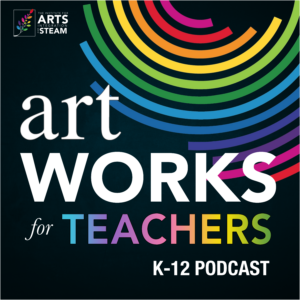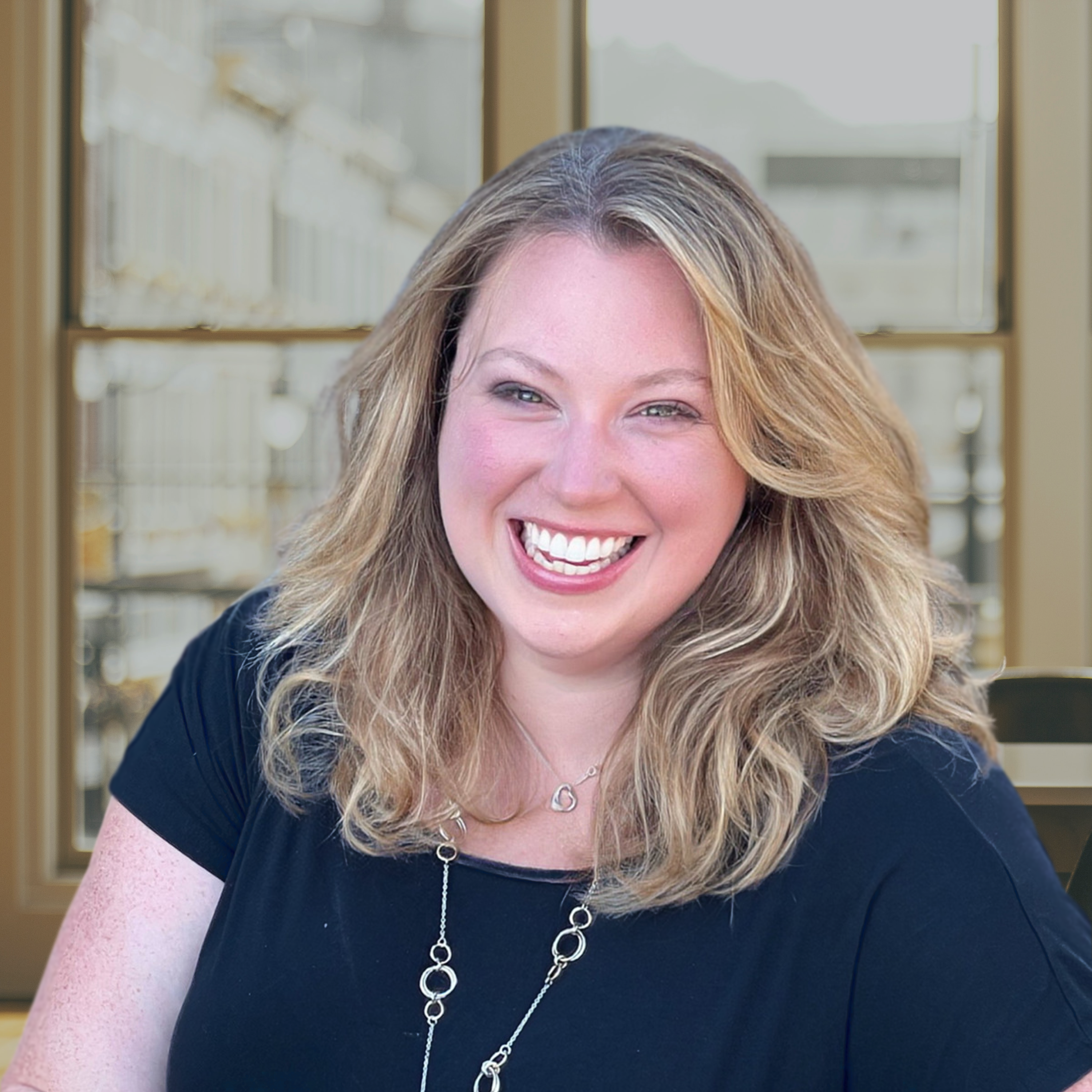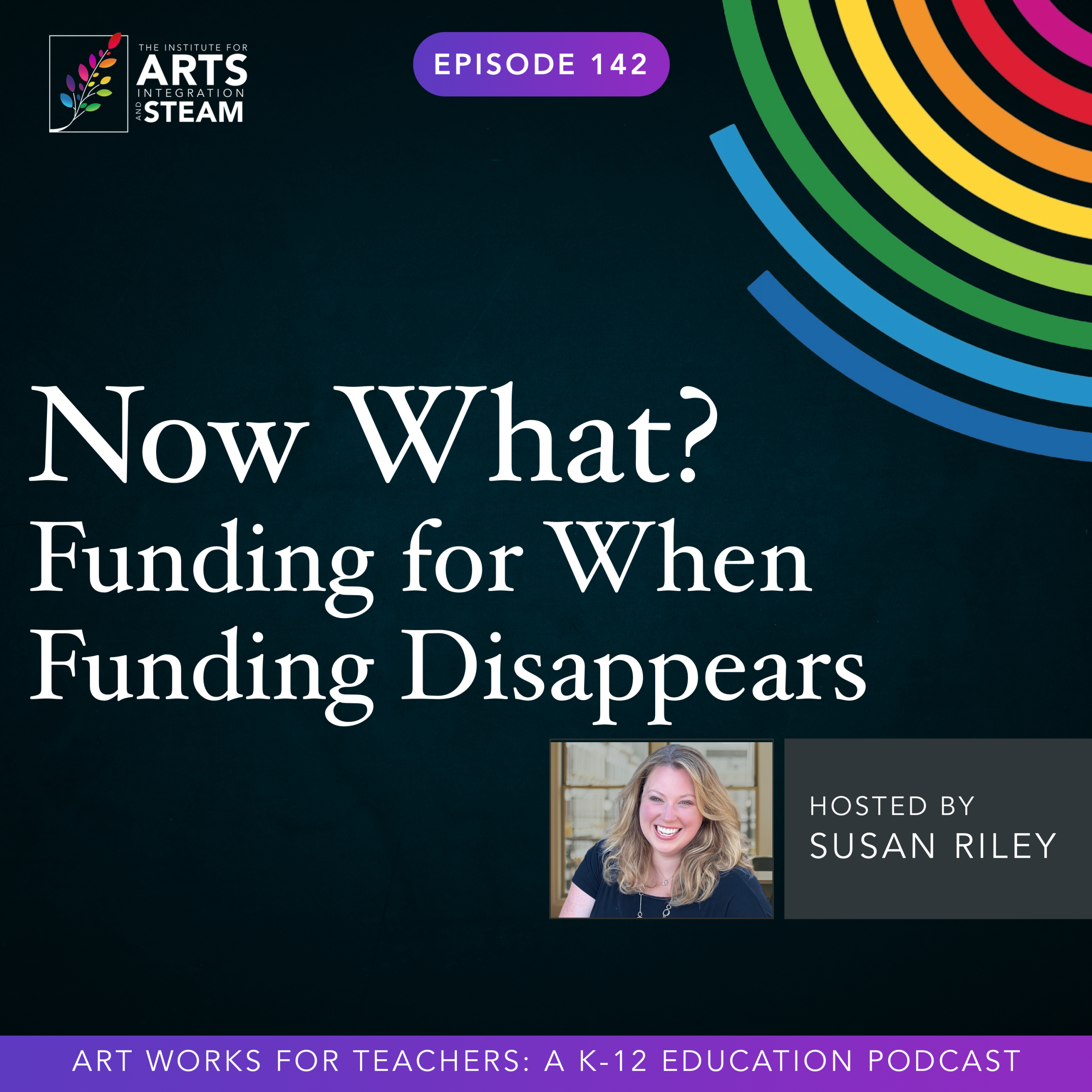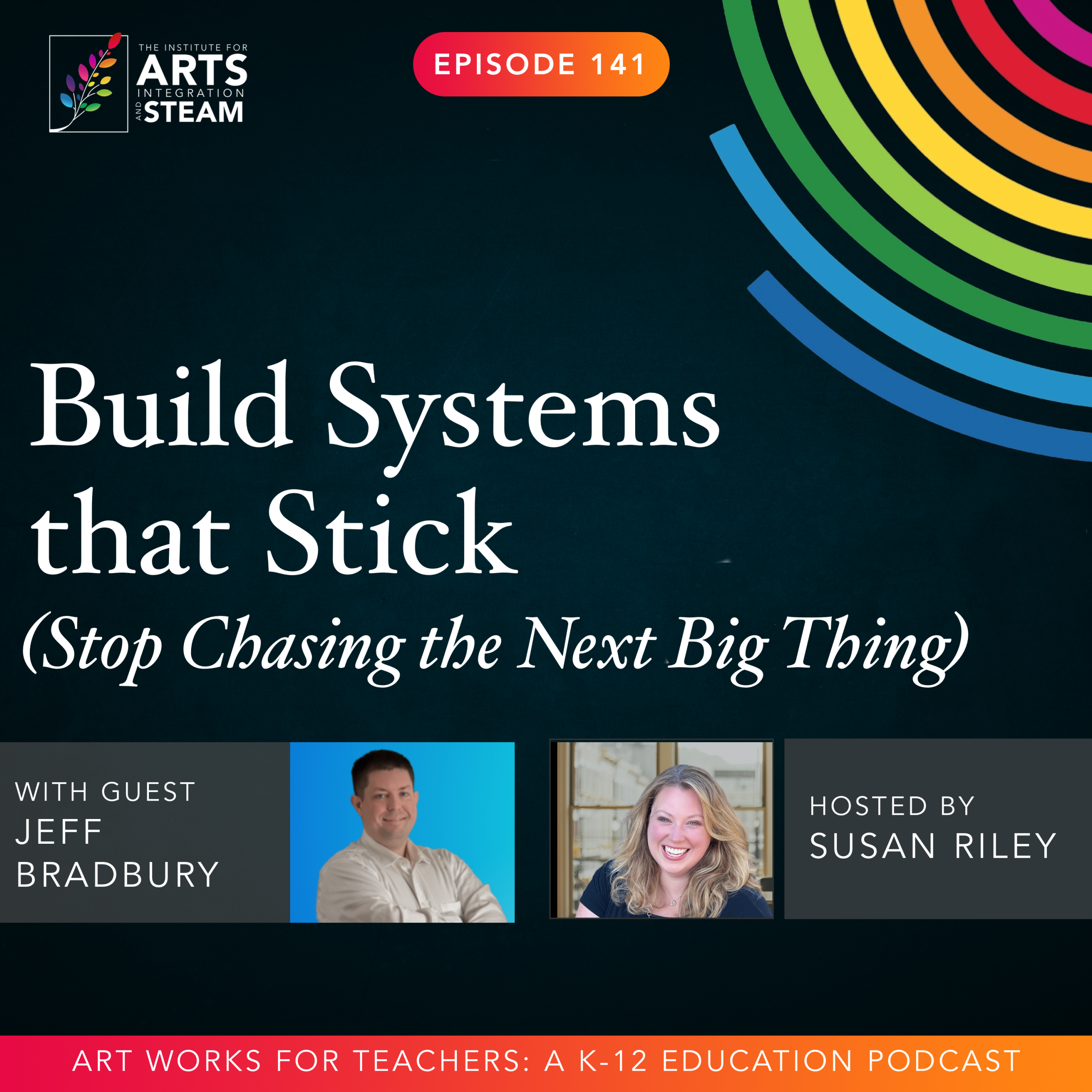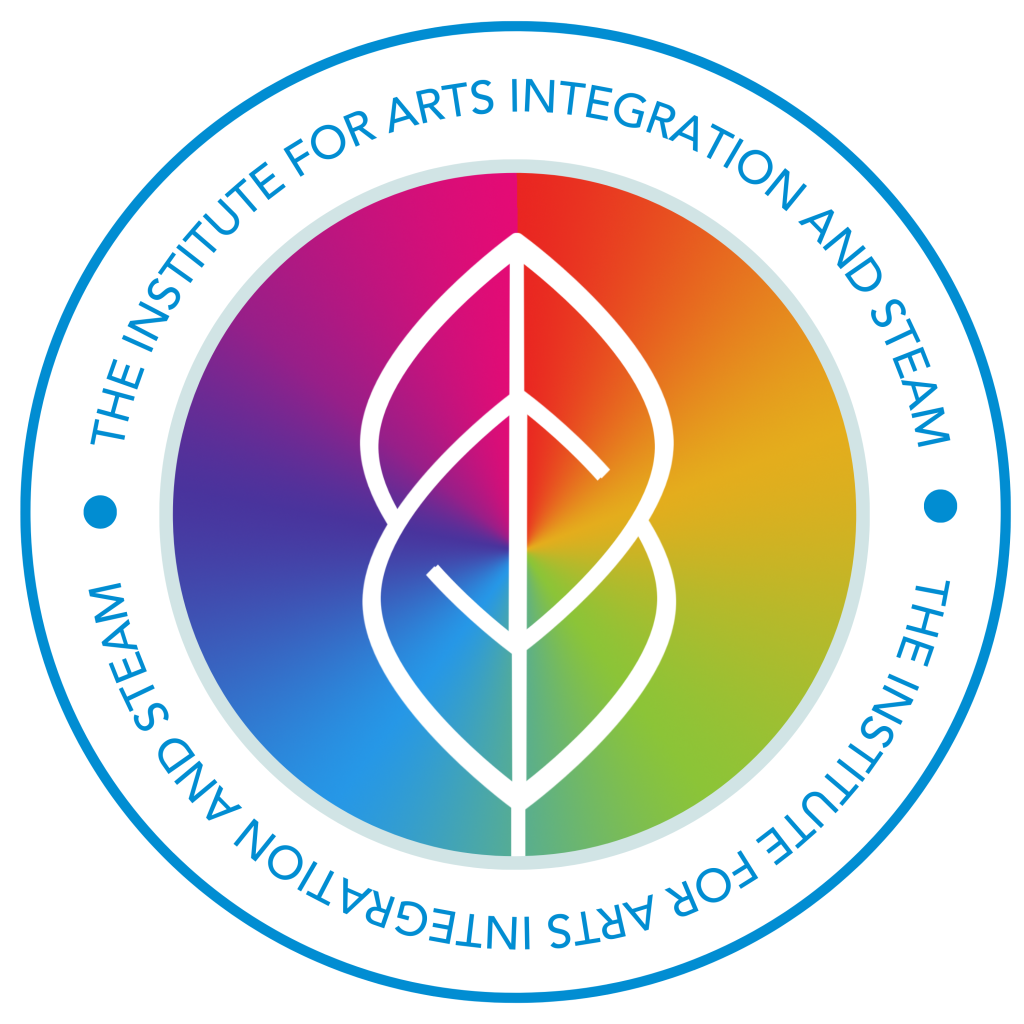ART WORKS FOR TEACHERS PODCAST | EPISODE 029 | 26:04 MIN
Get Ready for BookmarkED
Hello there friend. It’s Susan Riley and I’m glad to be back with you on the Artworks for Teachers Podcast. So after two weeks, I’m back with just you and me. But what an amazing two weeks. By the way, did you enjoy Austin Kleon and Dan Pink as much as I did? I mean, my conversations with both of those guys are so…I mean, it’s a dream come true to get to do this for a living.
Let me just tell you, I learned so much from them. And I mean, Austin alone, he’s kind of like going back to my dream of, you know, living in the 80s again, He’s just, he’s such a phenomenal artist and author, and Dan with his just his clarity of thought and his little pearls of wisdom that pop up, it was just a joy.
And so I hope you enjoyed both of them. Today this episode is gonna be a little short and sweet because it’s centered around a big announcement that I have for all of you educators out there. So coming up on April 1st, we’re not too far from now. I think this is like two days away.
We are gonna open up our very first online book club for teachers that’s gonna be happening this summer. It’s called BookmarkED with the capital ED. So bookmark ed, you, you could say a bookmarked, you could say a bookmark ed . But the whole idea is that we’re going to gather together as educators and go through children’s books this summer that are a wide variety of stories, of backgrounds, of artistry that we can explore with our students and do this together as a community.
So kind of intimate, but also with a global aspect. And so, because it’s so different, I wanted to take today to kind of share with you a little bit behind the scenes how we put it together, also what’s gonna be included and what we can expect and kind of go through the whole idea with you and share it. I’m really excited. I know it’s not available today, but it will be very, very shortly. And then we will add the website and everything to the show notes so that you have access to it as soon as it opens.
So a little bit of behind the scenes, right? So if you’ve been a follower of our organization for any time at all, most people actually enter our organization through our summer conference event. I think our very first online summer arts integration conference was back in 2012, if you can believe it. And I did the entire thing. And I invited like nine educators that I knew who were using arts integration to film just themselves, but do it live. And this is the time when we didn’t have, like, Zoom. It did not exist. We didn’t have, you know all of the online platforms that we have now.
I think Facebook was around. But, I mean, streaming was not a thing. And so it was, we were trying to stream this. We had Cisex, C I S E X. I, I know they’re still around, but it was at the very beginning of that streaming technology. And so kind of like WebEx we would, we turned it on and each presenter was supposed to log in during their time and present live for like 15 minutes through the whole thing.
I had 75 people register. I had 5 technology meltdowns. We, our internet went down at one point during that whole thing. So like, it was crazy, right? But somehow out of that 75 people, they went and told their friends that this was a good idea. And so from then on our organization kind of held these events that every summer, and then eventually also every winter we would host an online conference.
And then, you know what’s interesting is that we started it in 2012. I think one of my very first presenters was Jessica Balsley from the Art of Education. And she called me up after that event and was like, “Hey, how did you put that together? What were the things that you did?” And then that summer she started to host the Art of Ed, what is now the Now conference which is also very successful.
And then after that, you know, Kennedy Center started holding online conferences and it just kind of took off, which was awesome. And it’s been amazing to watch these conferences kind of really grow in their audiences. We have had such a fun time putting them on in the summer. But I’m not gonna lie, it’s a lot of work pieces, like and so many things that we’ve had to learn the hard way.
Figuring out platforms that are gonna be big enough and robust enough to allow us to stream to thousands of people. You know, when we say that we, that we do this live for thousands of people, other businesses don’t know. Like, they’re like, what do you mean thousands of people? Like five. No, no, like we’re talking like two, three, 4,000 people at a time.
And as technology has grown, you know, we’ve, we’ve found better and better platforms that allow us to do that. We’ve figured out that it would be much more secure and also beneficial to our participants if presenters would actually take the time to record in advance, and then we would then pull all of those presentations together to livestream during the day.
So that it frees up the presenter to answer questions in the chat. It also allows them to kind of edit along the way and make it really beautiful. And so for the last five years or so, that’s really how it’s gotten. And we’ve had, you know, presenters who will submit well in advance and then our ed tech team will go through and they manually splice everything together.
Our team members and I will, will go back and forth in terms of being an emcee. And so it’s a lot of fun. Like I said, it’s also a lot of work and securing keynotes but it’s always a really fun effort. Fun fact, as a behind the scenes kind of thing keynotes, we’ve had Dan Pink as our keynote.
We’ve had Eric Whitaker, we’ve had Gerry Brooks. We’ve had Julie Andrews, who is my favorite of everyone. We’ve had so many amazing keynotes. That said, the average cost of a keynote is between 10 and $20,000 for like 15 minutes of recording a message to teachers. It’s kind of crazy. And I know that we used to get a lot of backlash from, from people for charging for the conference.
But there’s a lot of expense that also goes with it. And so we would pay our keynotes. We also pay all of our presenters. And so everybody got paid to present for us. And so it’s an expensive endeavor. It’s a stressful endeavor to pull everything together and to like the day of the event, cross our fingers that everything works.
Like, we don’t take a breath for the two days that our event goes live to everyone. And so, I’ve always loved the energy behind it and even the stress behind it. I kind of thrive on that kind of stress. It’s the, it’s the musician in me, you know, prepping for performance, getting to the performance, and then taking the breath when you’re done.
But we’ve noticed something in the last two years, we started to notice this trend, particularly during Covid, and right after, that people were getting burned out of online conferences. I think now more than ever, people wanna go back to in-person, if you can. Absolutely. I understand that. I also think that when the world made everything go online and conferences had to follow suit, there are people who have, who were, had never done an online conference, right, who were shifting to that model and they didn’t have the advantages that we’ve had of, of all of these years of knowing what flops and what doesn’t, right, and what works. And so they kind of threw this together and then there was, it was a poor experience for them and for their audience, and I think a lot of teachers were a part of that.
I think a lot of administrators were a part of that. And so I just think that we started to notice a drop off in the amount of people who really wanted to engage in that platform, in that medium. And so we’ve been talking about this for a couple of years, and at the end of last summer, my team and I actually got together and, and I said, I, I really think this is it.
This is the last online conference we’re gonna do. We need to reimagine it. We need to reimagine this in a way that better fits the needs of our teachers, where they’re at that better fits the connections that teachers wanna make. And so, and benefits their price points to be quite honest. So that’s what we did.
We went back to the drawing board and so we surveyed a lot of you and a lot of our audience, we asked just a simple question. What is the biggest gap or pain point that you’re experiencing right now? And hands down, it’s literacy gaps. And it’s across the board. It’s even with the math teachers and the science, because literacy, as we know, affects everything.
It’s the literacy. And so we were like, okay, well that gives us a great direction. And so let’s talk about how do we focus on literacy? How do we help with literacy? We know arts integration can certainly impact literacy, but when you’re struggling to figure out there’s all of these levels of where your students are at, at any given point.
You have to differentiate that instruction. There’s a whole shift happening in the reading movement between structured literacy, balanced literacy there’s, the writing programs are all different. Okay, so where do we focus? Right? So literally, we’ve been chewing on this for a long, long, long time.
And finally, we settled on the idea of children’s literature, that we’d really like to explore the idea of children’s literature in a book club format. Something that’s low pressure, that is fun, that teachers just inherently love to do anyway. You know, one of the most popular posts on our site every year is when I release the teacher summer reading list, of like 20 books that I have read and my team has read over the last year that we would recommend for reading over the summer.
And so we were like, yeah, let’s do this in a book club format. So how do you do that online with thousands of people? We played with, by the way, the idea of, of making it in person. And I swear we’re gonna go in person at some point. At some point, in some way. I actually think it will be with our Accelerator groups, our school groups first in a very purposeful, connected kind of way there first before we do it as a big event.
But I was like, I don’t know that we have time to pull off an in-person event like this first. Two, the in-person nature of it would be a challenge given the amount of people that we’d be dealing with. Like 2-to-3000 people. That’s tough in three ways. I’m always concerned about the equity piece and quite honestly, spending the money to get on a flight to come because you know it’s gonna happen somewhere probably close to our organization’s headquarters.
So mostly some, somewhere around Baltimore, Maryland. For people who are on the West coast that gotta fly all the way to the West coast, that’s tough. Even if we held it at the center of the country, people gotta fly. They have to pay for airfare and hotel and food. And while that’s fun and you might be able to get reimbursed for some of it, to be honest, that’s an equity issue. We don’t, there are people who cannot afford to do that, but they need the information and they need the experience. So the whole reason that we have always held online events and always have done most of our work online is to provide equity so that people, anywhere, anywhere in the world, regardless of their situation, can have access to high quality professional development and resources.
And so I didn’t wanna give that up. So again, it comes back to this idea of, well, great. So how do we create a book club experience for thousands of people that they find value in, that they’re gonna be able to network with other teachers without feeling overwhelmed and, or get lost in the where they’re supposed to go.
Challenge accepted. So we decided that we picked five books that our staff had gone through with a fine tooth comb. Our educator friends from various pockets around the country gave us their input as well, and then selected these five books to use as book study. So each of these are a piece of children’s literature.
And the idea behind Book Club for this summer is that you’re gonna be able to select one book to focus on. I know you could probably read five children’s books in a week, but I don’t wanna overwhelm anybody. So you’re gonna pick one to really focus on. And then, the book club itself is gonna be three weeks long, and it is gonna be located in our community area.
So we use a platform called Circle that allows us to have a private online community. And so it’s free to register for it. It’s not, that’s easy, right? You can sign up for a Circle account and you’ll be able to hop into the community area just for your strand, as well as the main event area for all of the strands in the main event area.
That’s where we’re gonna host our group conversations, our large group conversations. Anytime we have a live streamed component that’s gonna be held there, but you’re gonna actually spend most of your time in your smaller community strand of the book that you chose. And so the way this is gonna work is that it is three weeks long, but it’s a really light, easy three weeks in the month of July.
So the first week of July, you’re gonna read the children’s book that you selected for your strand. The second week you’re gonna be working in your group to look at ways that you could share that book in your classroom. Through various lesson ideas connected to the arts. So what’s great about this is that we’re gonna pair you with a coach, and the coach is gonna be addressing your entire strand.
So your strand might have several hundred people in it, but it’s not gonna have thousands, right? And that coach is gonna share with you on the second week, here’s a model arts integrated lesson using the book. Here are some questions we’re gonna wanna think about. Here are some other ideas or extensions you might consider and then they’re gonna put you in breakout groups in Zoom so that you can work together to kind of bounce around ideas and come up with your own for how you would introduce that book to your students.
And then the third week, you’re gonna create your own arts integration lesson. Based around the book and it, you’re gonna share that you’re gonna turn that lesson in. When you turn that lesson in, you’re gonna get a certificate, a PD certificate for 15 hours, and then at the end, we’re gonna have all of the lesson plans that were submitted available in an archive so that you could download all of the lessons that were created from any of the strands.
So from yours, or let’s say you picked one of the books and you really also wanted to, to explore one of the other ones you could have available to you all the lessons that were created for that other strand as well. So you’ll be able to access all of the lessons that were submitted in a library, which is great, right?
Because everybody gets to share and, and celebrate one another. You also get the experience of going through the book. You actually have that book study experience that first week with your coach and your group, and you get to learn about how to create a great arts integration lesson around a piece of literacy that you could focus in on.
One idea, maybe it’s a piece of writing, maybe it’s looking at context, maybe it’s looking at theme. Maybe it’s looking at phonetics of, of specific word groups that you have going on, fluency, how to teach fluency through perhaps music or dance or creative movement in some way. Right? You’ll be able to explore all of that during the book club experience. So I hope that that kind of gives you a 30,000 foot view of how we’re crafting this for you. And I’m really excited about it because I think this is so much more meaningful than the traditional conference experience, The conference experience, I still think has a, has its place right where you go and, and you get a bazillion ideas all at one time and it’s fun and you’re able to network with everybody and all of that good stuff.
But at the end of the day, when you leave that conference, what do you take with you? You probably take one or two key ideas, right? Because everything else is too overwhelming. There’s just so much stuff and you might not even revisit it for years. This experience is designed so that it’s really purposeful for you.
So that you’ve selected a book, you’re reading it, you’re looking at it from the lens of how would I introduce this to my students? How would I then create a lesson around this that would be meaningful for my students, for me, that’s gonna teach the curriculum that I need to teach? And then you’ll have that with you so that at the beginning of the year, you already have a lesson that’s ready to go, and that’s gonna be high impact for your students.
So I think that that, and plus you get 15 PD hours from it. Right. And did I mention that I am also interviewing each of the authors of the books? And we’re gonna have a kickoff event where each of these authors will be live streamed in our main stage area just for our book club members. So that you can hear right from the author, the background of the story, what they were thinking when they were creating it, their process, some key information about themselves and about the characters.
It’s really, really, phenomenal how much these authors are willing to share. We’re gonna do that as a kickoff event for you. And then each of them has shared something really special for our participants because they just believe in you so much. So I also, before I go, I wanna share with you the books and the authors that we’ve selected so that you can kind of start thinking about, is this something that I wanna part.
We’ve been really purposeful in selecting both picture books and novels. So it’s definitely gonna be an event for K-8. High school friends, if you are a high school teacher, I would say still come because I’ve still used picture books with high school kids. I’ve used some of these novels with high school kids looking for different themes, and especially if you are an art music, theater dance teacher, if you’re an arts educator, this is a different way.
Of accessing the information that we share sometimes during conference, we often come through it at this approach through the arts lens. We’re now gonna come at it from the literacy lens, and you are going to be able to explore this piece of literature in and through your art form, and it’s an incredible way to do that.
Also, I can guarantee you, your administrators are gonna love that you have this experience because this is going to, literacy is gonna be on every administrator’s goal for 2023, 2024, and if you already have a leg up on it in your medium, that’s awesome.
All right, so here’s the five books that we’ve chosen. The first one is called Lights Camera Alice, and it’s actually about the first woman filmmaker that was written by Mara Ratcliff.
Second one is a novel, this one’s called Boundless. It’s a new novel by Shaunte Lowe. She is a four time Olympian and she was also a teacher. A math teacher and current mom of three and breast cancer survivor. So this book, Boundless, is her memoir, but she’s written it as a memoir in the voice of children. So it’s a really great twist on how to write a memoir and take a look at that.
The third book is Firebird, and this was written by Misty Copeland. So Misty Copeland is a ballet dancer from the American Ballet Theater or American Ballet Company. She was the first black principal ballet dancer for that company, and since then has gone on to do so many other things. But she has written this book, Firebird and it uses a twist of Tchaikovsky’s Symphony to go through the story. Yes, and you will be hearing from her at our author event at the very beginning. So I’m really excited for people to hear from Misty.
Our next novel is Esperanza Rising. This is actually being turned into a movie from author Pam Muñoz Ryan. And so this particular story, again, we chose these stories for a variety of reasons. There’s a lot of depth to these stories. There’s a lot of things we can take apart and look at in terms of arts integration, perhaps some steam, but also culturally. And I think it’s important that in each of the books, we have an opportunity for all of our children to see themselves. And certainly in Esperanza Rising, that is a possibility.
And then the last one is The Magic In Changing Your Stars from Leah Henderson.
So these are the five books that we’ve chosen, again, for book club.
You’re gonna select one book and then you’re going to choose that book to study in depth and then create a lesson for it, and it’ll be able to turn that in for your PD hours. This, this is gonna be a lot of fun, you guys. It’s gonna be in an online community, so you can do it by the pool. It should be easy and it should be really, really fun and meaningful for you.
The pricing, again, we’ve tried to make this as easy as possible for you to say yes to. Early bird pricing’s gonna be $99, and that’s gonna be in place until the end of May. So for the first two months, you’ll have early bird pricing. After that, it’ll move to $125. And the only other thing that you need to purchase is the book.
So you’ll purchase the ticket and then you’ll purchase the book and you’ll have everything you need for this event. We’ll provide you with everything else, the lesson templates, and the coach and the platform. And so I hope to see you there. I hope that this has gotten you really excited about what’s coming.
And like I said, it’s brand new for us. We have no idea if this is gonna work or not, but I think. I think it’s a wonderful opportunity for all of us to connect in a new way, and I’d love to see you there.
So, all of that information’s gonna be over at the website, arts integrationconference.com, or if you prefer bookmarked2023.com, either one, it’s gonna be at both places so that you can find all the information you need and get registered.
So I hope to see you there. Thanks.
BookmarkED ’23 – https://bookmarked23.com/

